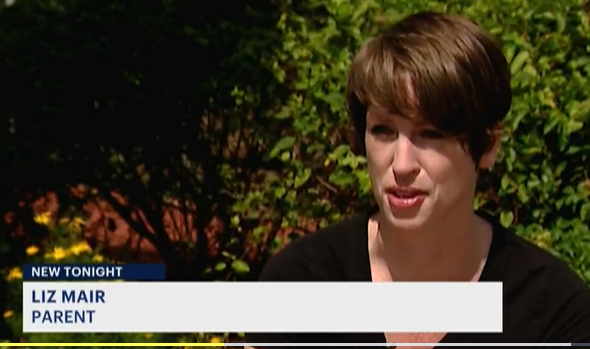






“But Couldn’t Kids Get Hurt?” The Media’s Favorite Gotcha!
It is always hard to deal with the media’s cheapest trick: hypothesizing.
You see it every September when a child is dropped off at the wrong bus stop somewhere in America (it happens!) and the kid finds their way home, unharmed. That would be a boring story if not for…hypothesizing! “Luckily, Lucas got home safely. But what if he hadn’t?” the reporter will intone. Then they’ll interview a relative saying they can only imagine all the horrible things that could have happened.
But didn’t.
Always be catastrophizing.
By simply switching the topic from “capable kid” to “kid who COULD have been killed” the media steers us over to its favorite narrative: An unsupervised child is a child in terrible danger.
Which brings us to this story from News 12 in Connecticut. The Nutmeg State — yes, weird, pumpkin-spice-y nickname — is one of four that passed a Reasonable Childhood Independence bill this spring. THAT IS FANTASTIC.
The fact that it passed unanimously there, and in Virginia and Illinois, too, should indicate this is not a nutty law. (Nutmeggy– that’s another story). Watch Liz Mair, a political strategist and Stamford mom who advocated for the bill, describe it in this news story:
“If you had an 11-year-old who wanted to go three blocks down the street to play soccer at the local park with their also 11-year-old friend, if they were not under some sort of adult supervision, technically their parents could have been charged with a criminal offense.” —Liz Mair

Pretty straightforward.
Find the Fear.
But the reporter finds a mom — ON THE BEACH — who says SHE keeps an eye on her kids.
As if the law says parents shouldn’t! As if the law says if you think your kid is in danger, you are free to ignore the peril. It does NOT say that.
It simply gives parents the right to NOT watch, if they believe their particular kid in a particular situation — generally not when they’re toddling into THE VAST OCEAN — will be fine on their own.
The end of the story gives the worried mom the last word: “I know back in the day that we just – we rode our bikes, our parents said goodbye and that was it, you know? But now, it’s a different time.”
This “kicker” makes it sound as if it is a far less safe time today — a common misperception. In fact, the crime rate was far higher in the ’80s and ’90s, when this mom was probably a kid, riding her bike. (Here is our crime stats page.)
Plant that doubt!
So the deal is this: Reporters feel they must spice up their stories with controversy and, if possible, danger, even when it’s hypothetical. And even when a random fact – “It’s a different time” – is not a fact at all.
This constant drumbeat of doom, so common we breathe it in without noticing, pollutes our brains and hearts. It makes us feel as if every parenting decision is fraught with peril. So do try to recognize what is happening when you watch/read/hear the news. And try to remember that in some states now, at last!, parents who know and love their kids more than anyone, are allowed to take their eyes off them before the kids turn 12.
THAT is news.
Reasonable Childhood Independence laws have been passed in eight states: Utah, Texas, Oklahoma, Colorado, Virginia, Illinois, Connecticut and Montana. If you are interested in helping to get a law passed in your state – or have been shamed or investigated for giving your child some reasonable independence – please visit LetGrow.org.



The sensationalist narrative is easy for journalists to fall into. In fact, I think you fell into it a little here, just on the opposite side.
For example, I imagine this sentence would have been very satisfying to write but seems a little over dramatic: “This constant drumbeat of doom, so common we breathe it in without noticing, pollutes our brains and hearts.”
Similarly, the headline is a little click-baity. Of course, click-bait headlines work for engagement; it’s partially why I’m here and commenting. But it seems hypocritical to castigate “The Media” for being sensational when you are using the same methods.
Or maybe you consider it fighting fire with fire. Either way, Let Grow is still one of my favorite organizations to support. I would just like it even more if the blog posts were a little less sensationalistic.
I was a kid from the mid 1950s to the early 1970s. When I read this stuff and compare it to the way kids lived then, it’s like reading about how life is on another planet. I can’t imagine being a child with the restriction, oppression, lack of freedom, and continuous adult surveillance they suffer under today. It would be hard to believe it was real, except I’m reminded that it is whenever I drive the residential neighborhoods of my town and it’s like a Twilight Zone episode in which children don’t exist. The front yards, sidewalks, and streets are empty and quiet, except for my memories of the ghosts of children past, playing ball, riding their bikes, roller skating, climbing trees, and laughing, like we used to–without adults constantly shadowing us. I hope, some day, a generation of children can have that joy again.